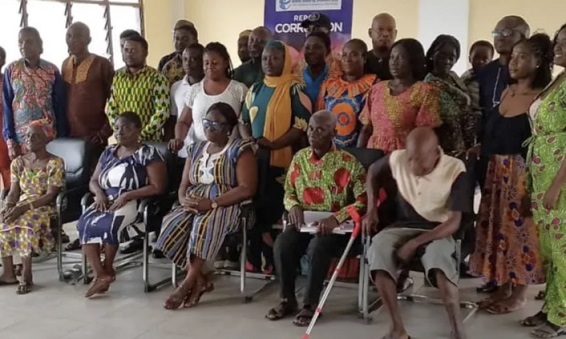The Ghana Integrity Initiative (GII) is making a strong case for citizens to lead the fight against corruption to achieve the desired results as a country.
Michael Boadi, Fund Raising Manager of GII, said it was time to depart from the top-down approach to fighting corruption, which has over the years yielded little results and rather build the capacity of citizens to appreciate the devastating effects of corruption.
This way, they could hold political establishments accountable while educating their peers and communities to change from behaviours that contributed to corruption.
He was speaking at a two-day anti-corruption workshop put together by GII in collaboration with the National Commission for Civic Education (NCCE) at Juaso in the Asante-Akim South Municipality.
In attendance were representatives of local civil society organisations, community-based organisations, social auditing clubs, women-based associations, youth groups and persons with disability.
It formed part of a project dubbed, “Strengthening Accountability, Rule of Law, and Institutions being implemented by GII in partnership with the Centre for Democratic Development (CDD), and Ghana Anti-Corruption Coalition (GACC).
With funding from the European Union (EU), the project is being implemented in 24 districts and the goal is to empower citizens to take a keen interest in the fight against corruption.
Mr. Boadi underlined the importance of the three organisations working together against corruption unlike previously when they fought for a common goal individually.
He said it was important to raise the awareness level of the citizenry on corruption not only to equip them to demand accountability from duty bearers but also to desist from corrupt practices.
“If there is a responsibility to guard the resources of the State then that responsibility lies squarely with the people and therefore we designed this project to equip the citizens with the capacity to hold office holders accountable and also lead the campaign against corruption in the communities,” Mr. Boadi stated.
He spoke about how the country continued to lose huge sums of money to corruption over the years, according to the Auditor General’s report, and stressed the need for collective efforts towards the fight against the canker.
He said every government under the Fourth Republic had been accused of financial malfeasance despite the enactment and review of anti-corruption laws aimed at combating the menace.
According to him, the time had come to do things differently, stressing the need to adopt a bottom-up approach where the citizens are empowered to actively get involved in the anti-corruption fight.
Patrick Asare, a Representative of the NCCE, said the fight against corruption must begin at the individual level and urged the participants to desist from corrupt practices wherever they found themselves.
He said the perception that only public officeholders were corrupt was erroneous, saying that corruption permeated every facet of society.
GNA





